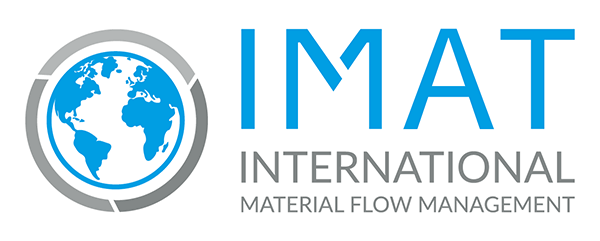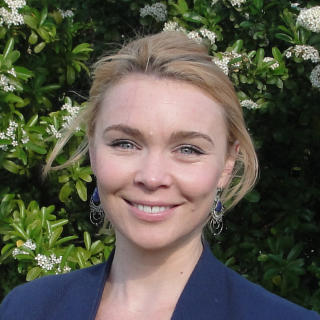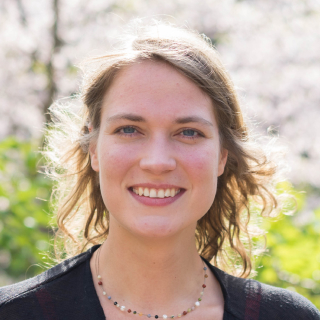
Dual Degree Program : International Material Flow Management (IMAT)
ABOUT THE IMAT PROGRAM
IMAT is a dual-degree program managed jointly by APU and the Institute of Applied Material Flow Management (IFaS), an innovative research institute of the Trier University of Applied Sciences (Germany). Students will spend their first year studying at APU in the Sustainability Science division and the second year at the Zero-Emission Campus Birkenfeld in Germany.
The program offers integrated knowledge in engineering, economics, law and natural and social sciences. In addition to the learning goals of the Sustainability Science division, IMAT offers multidisciplinary courses to prepare students to become young professionals in zero emission systems design with profound knowledge in renewable energy, integrated water resource management and other sustainable community development areas. Students will also have the opportunity to conduct field work in Japan and participate in an internship in Germany. IMAT students will have to submit a master’s thesis to IfaS in Germany. A concise summary of this thesis is to be submitted to APU in the form of a research report. Upon completion of the program, students receive two master’s degrees, a Master of Science in International Cooperation Policy (from APU) and a Master of Engineering in International Material Flow Management (from Trier University of Applied Sciences).
Message from the IMAT Program Coordinator
| Degree |
Master of Science in International Cooperation Policy (from
APU) Master of Engineering in International Material Flow Management (from Trier University of Applied Sciences) |
|---|---|
| Division | Graduate School of Asia Pacific Studies - Master's in International Cooperation Policy - Sustainability Science (SS) |
| Program Duration | 2 years |
| Enrollment Semester | September |
| Total Tuition | 2,800,000 JPY |
| Program Fee | 100,000 JPY per semester (400,000 JPY total) |
| Administration Fee in Germany |
approximately 376.80 EUR per semester *Amount subject to change. |
| Blocked Account |
approximately 11,904 EUR *Amount subject to change. |
| Application Schedule | 2026 Application Schedule |
| Application Information | 2026 Master's Programs |
| IMAT in Japan |

|
SAMPLE RESEARCH TOPICS
- Valuation of Manure: Could a Fairer Supply-Side Pricing Improve the Allocative Efficiency for Manure?
- Residential Solar Photovoltaics Coupled with Battery Energy Storage: a Case Study of Oahu, Hawaii’s Policy and Program Incentives
- Japan's Renewable Energy Potentials Possible Ways to Reduce the Dependency on Fossil Fuels
- Current Situation and Challenges of Biomass Town: Case Study of Hita City, Japan
- Waste–To–Wealth Potentials Of Municipal Solid Waste: The Case Of Ga-East Municipal Assembly, Ghana
- Measures for Scarce Water Resource in Fukuoka City, Japan
- Off-Grid RET Barriers and Supports in Developing Countries with Case Study of Solar Home System in Cambodia
SAMPLE CAREERS OF IMAT GRADUATES
Alumni Pathways
- AUDI, Mexico
- DNV GL, USA
- Deloitte Tohmatsu Consulting LLC, Japan
- Environmental Authority, Hawaii, USA
- 4Europe Consulting, Germany
- Institute for Applied Material Flow Management (IfaS), Germany
- General Motors Powertain, Uzbekistan
- Green Concept Consulting, Nigeria
- Juwi Renewable Energies Private Ltd., Singapore
- KOE Environmental Business, Japan
- Kitakyushu Eco City Foundation, Japan
- New Zealand Transport Agency, New Zealand
- Saferay Pte. Ltd., Singapore
- Wujin Green Industry Park, China
IMAT Alumni & Student Voices

Ariane Albers (Germany, Graduated in 2013)

Dr. Hari Kumar Suberi (Bhutan, Graduated in 2014)
Consultant, Royal Institute of Management – Switch Asia EU Project, Bhutan
The IMAT program completely changed and broadened my approach to research and learning thanks to its cross-continental reach between Germany and Japan. The interdisciplinary knowledge I mastered through the IMAT program has been invaluable to my work providing services as a freelance consultant to international organizations and the government of Bhutan as well as in my continued education in interdisciplinary research as a fulltime PhD student in Germany.

Ulrike Kirschnick (Germany, Graduated in 2018)
Project Manager, IfaS (Trier University of Applied Sciences), Germany
Studying in IMAT has allowed me to discover, develop, and enhance my own potential. Due to the variety of lecturers from academic, governmental, and business backgrounds as well as the cross-cultural experiences that APU in Japan and IfaS in Germany offer, I have gained confidence in international cooperation, broadened my horizons, and nurtured my passion in this innovative and emerging field of study.

Sagaitu Konusi (Fiji)
Current IMAT Student, 2023
I was drawn to the IMAT program because of its interdisciplinary study approach and the opportunity to apply classroom taught theory into the field. Topics such as renewable energy financing, climate change policy, and wastewater management are essential to tackling the real-world sustainability issues of today. I have taken part in dynamic in-class debates and visits to renewable energy sites such as biomass, wind, and solar energy facilities, cultivating a mindset for critical thinking, developing a capacity to work in multicultural environments, and nurturing my analytical and leadership competence.
The two-year IMAT graduate program broadened my horizons, reaching beyond the conventional boundaries of discipline, culture and business. IMAT provides a unique theoretical and practical setting within small-sized classes, enriched by valuable debates and input on sustainability issues and challenges. This included looking at issues such as management practices and policy aspects of waste and wastewater management, energy efficiency, renewable energy and technology from different perspectives. Thus we were encouraged to develop critical and holistic thinking skills as well as problem-solving capabilities tailored to specific projects or situations. From this study, I learned to view things differently and to see potentials and opportunities in every challenge to move towards more sustainable development. Also, I appreciated the international and multicultural integration of the program offered both in Japan and Germany. I personally valued meeting people from different parts of the world which boosted my intercultural competence and open-mindedness to succeed in today’s global community.